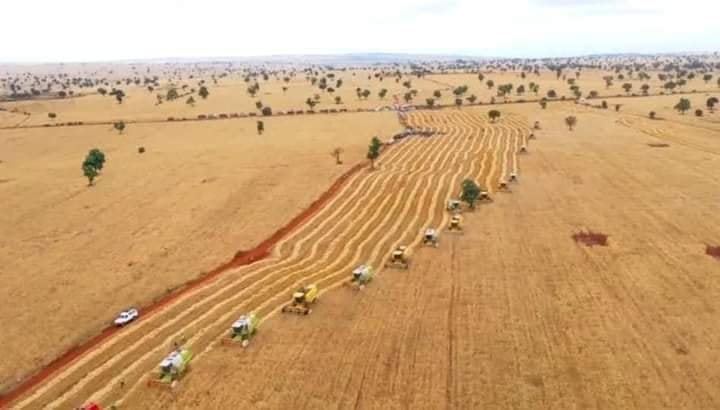Ethiopia’s expanding agricultural footprint embodies Africa’s untapped arable power ahead of UNFSS+4
Addis Ababa, July 26, 2025 (FMC) — As Ethiopia prepares to co-convene the United Nations Food Systems Summit +4 (UNFSS+4) from July 27–29 in Addis Ababa, the country’s remarkable agricultural expansion is drawing renewed global attention to Africa’s role in ensuring food security.

With cultivated land in Ethiopia now reaching 31.8 million hectares — up from 23 million just a year ago, as announced by Prime Minister Abiy Ahmed during his address to Parliament on July 3, 2025 — the nation now accounts for roughly 9% of Africa’s total cropland, according to the latest land use data from the Ethiopian Agricultural Transformation Institute (ATI).
This advancement not only highlights Ethiopia’s rapid transformation under the current administration but also mirrors a broader continental opportunity.
Africa is home to approximately 60% of the world’s remaining uncultivated arable land, according to the African Union’s 2024 policy brief titled Unlocking the Potential of Africa’s Soils, yet much of it remains underutilized.
Both the African Union and the UN Food and Agriculture Organization (FAO) emphasize that harnessing this potential is essential to meet future global food demands, reshape food systems narratives, and advance the objectives of the African Continental Free Trade Area (AfCFTA).
Ethiopia’s gains are underpinned by strategic investments in irrigation, mechanization, and improved market systems. These initiatives have positioned the country as a model for food sovereignty, integrated food systems, and climate-smart agriculture. The government’s focused drive toward wheat self-sufficiency has also earned international recognition, including the FAO Agricola Medal awarded to Prime Minister Abiy Ahmed in 2024.
The UNFSS+4 Stocktaking Moment comes at a critical juncture for Africa’s food and climate agenda. The Convergence Initiative — co-pioneered by Ethiopia with support from the UN Food Systems Coordination Hub, the World Food Programme (WFP), FAO, and other partners — provides a forward-looking framework for aligning agricultural development with nutritional goals and climate resilience.
With nearly 350 million hectares of cropland already cultivated in Africa, according to the FAO-AU Africa Open DEAL initiative, and hundreds of millions more hectares suitable for farming, the continent holds a decisive role in reshaping global food systems. The summit offers a moment to challenge outdated narratives and affirm Africa’s capacity to feed itself and the world through homegrown strategies and innovations.
Ethiopia’s contribution to this trajectory — as both a convener and a leader — reinforces the summit’s central message: that Africa’s agricultural future is not only essential but already taking shape.
As global delegates gather in Addis Ababa for UNFSS+4, Ethiopia’s journey stands as a testament to the transformative power of investment, innovation, and inclusive partnerships in driving sustainable agricultural development across the continent — and to the broader vision of food sovereignty, resilience, and African-led solutions for global challenges.

